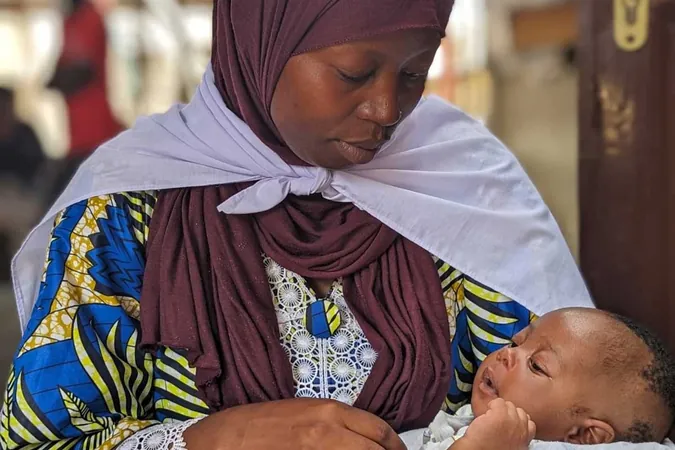
Burundi's Vaccination Revolution: A Lifeline for Young Lives
2025-04-10
Author: Wei Ling
A Dramatic Turnaround in Child Mortality
In a remarkable development, Burundi has witnessed a substantial drop in under-five mortality rates, with health leaders attributing this success largely to an expanded vaccination program. According to UNICEF, the number of children who die before their fifth birthday plummeted from a staggering 143 deaths per 1,000 live births in 2002 to just 50 in 2022.
Vaccination Rates Soar
Statistics from UNICEF and the World Health Organization reveal that Burundi’s immunization coverage has surged, with the third dose of the DTP (Diphtheria, Pertussis, Tetanus) vaccine now reaching 91% of children, up from 81% a decade ago. This rise is a key factor in the country's fight against vaccine-preventable diseases.
Dramatic Decline in Disease-Related Deaths
In 2014, 1,430 children died from diseases preventable by vaccines. Fast forward to 2024, and that number has drastically reduced to just 265 fatalities. Dr. Polycarpe Ndayikeza from the Ministry of Health highlights impressive declines in child mortality rates from diseases like pneumonia (down 92%), tuberculosis (down 72%), and acute respiratory infections (down 69%). He expresses hope that a newly introduced malaria vaccine will continue this momentum in reducing childhood illness and mortality.
Real Stories Behind the Statistics
Aline Hatungimana, a 28-year-old mother from Buyenzi, shares her personal experience with the vaccination gap. She recalls how her firstborn faced frequent health scares until a compassionate nurse encouraged her to seek vaccinations.
“Now, my first child is healthy at nine years old, and my second was vaccinated from the start. Vaccination not only saved their lives but also reduced my financial burden from frequent hospital visits,” she states.
A Legacy of Immunization
Burundi's Expanded Programme on Immunization, launched in 1980, has made impressive strides. Initially focusing on DTP, measles, and polio, the program introduced newer vaccines like hepatitis B and hib through simplified delivery methods. Thanks to these efforts, child health has improved dramatically, leading to reduced medical expenses and better school attendance.
Tackling Misinformation
Despite significant achievements, challenges remain. Misinformation about vaccinations is still a concern, as noted by Honorine Nkunzimana, a dedicated health worker. The pandemic exacerbated the spread of false information, leading some parents to neglect essential vaccinations. Still, community outreach efforts have yielded positive results.
“We go to homes to ensure children are vaccinated,” Nkunzimana explains. “We aim to educate parents on the life-saving importance of these vaccines.”
A Community Commitment
Local mothers like Hafsa Ramadhan are vocal advocates for vaccinations, emphasizing their vital role after witnessing health crises in their neighborhoods. “Knowing a child with polio is a powerful reminder of why vaccination is crucial,” she asserts.
Global Progress in Perspective
The world is also witnessing progress; the global under-five mortality rate has decreased from 3.7% between 2000-2015 to 2.2% from 2015-2023, showcasing a global commitment to child health. In Burundi, this commitment is reflected in the lives saved and the futures brightened through vaccination.



 Brasil (PT)
Brasil (PT)
 Canada (EN)
Canada (EN)
 Chile (ES)
Chile (ES)
 Česko (CS)
Česko (CS)
 대한민국 (KO)
대한민국 (KO)
 España (ES)
España (ES)
 France (FR)
France (FR)
 Hong Kong (EN)
Hong Kong (EN)
 Italia (IT)
Italia (IT)
 日本 (JA)
日本 (JA)
 Magyarország (HU)
Magyarország (HU)
 Norge (NO)
Norge (NO)
 Polska (PL)
Polska (PL)
 Schweiz (DE)
Schweiz (DE)
 Singapore (EN)
Singapore (EN)
 Sverige (SV)
Sverige (SV)
 Suomi (FI)
Suomi (FI)
 Türkiye (TR)
Türkiye (TR)
 الإمارات العربية المتحدة (AR)
الإمارات العربية المتحدة (AR)